
Latest Editions
-
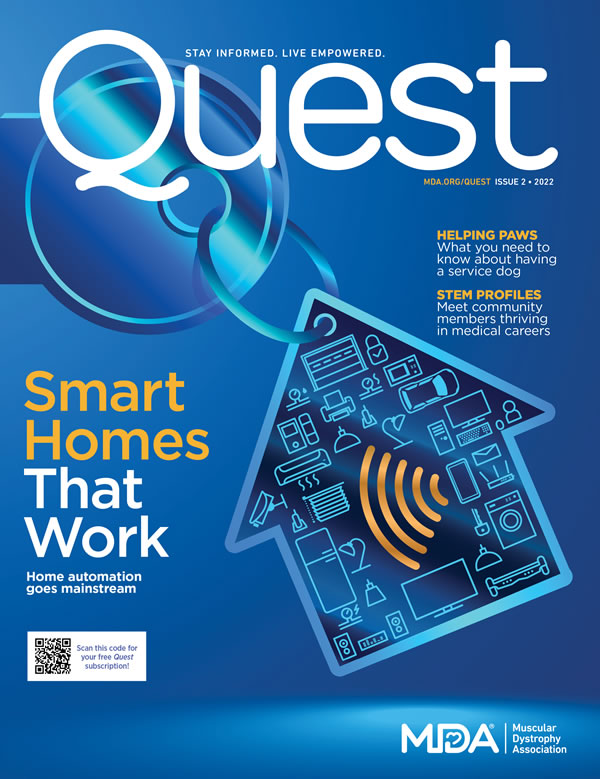 Quest Issue 2, 2022
Quest Issue 2, 2022 -
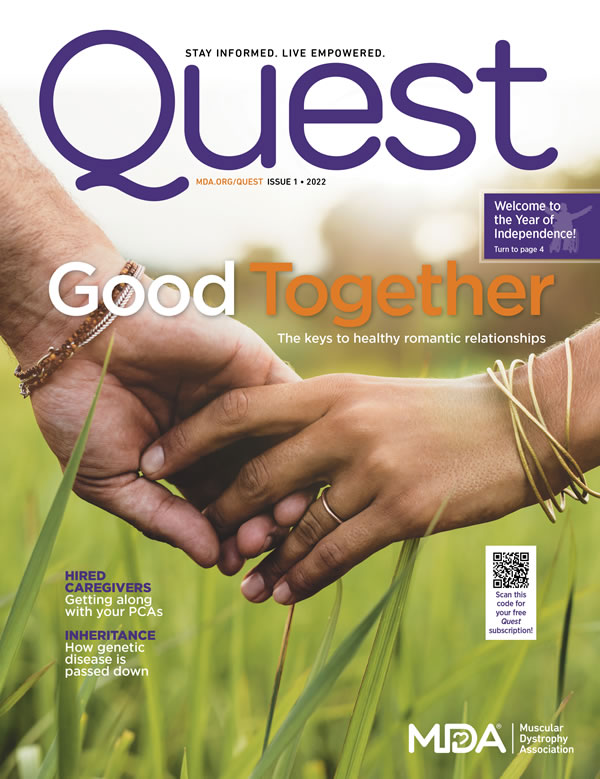 Quest Issue 1, 2022
Quest Issue 1, 2022 -
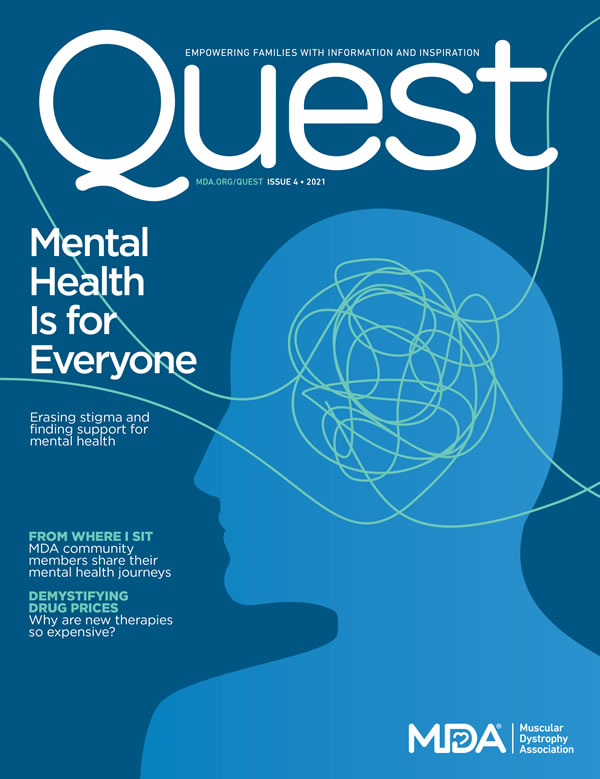 Quest Issue 4, 2021
Quest Issue 4, 2021 -
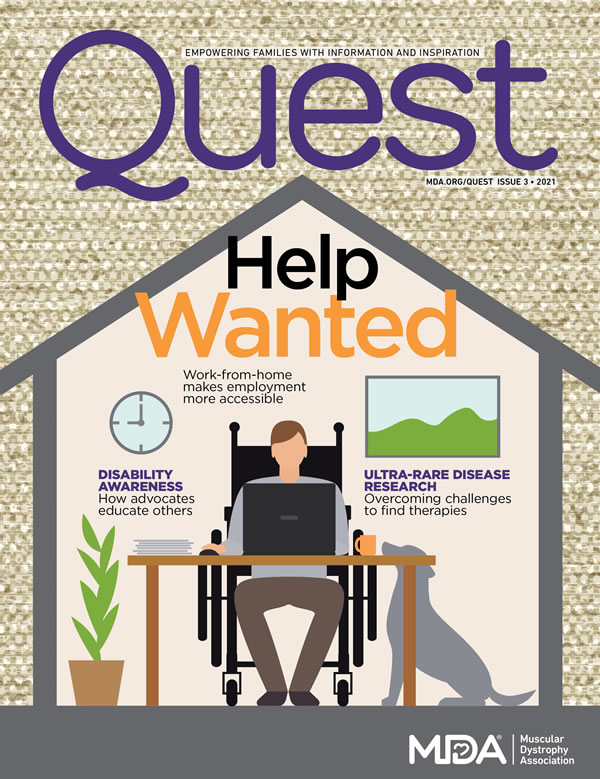 Quest Issue 3, 2021
Quest Issue 3, 2021
Recent Quest Articles
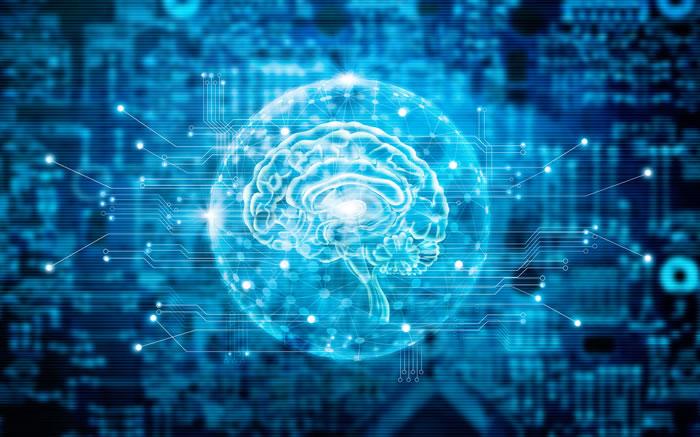
A Visit with Stephen Hawking
An MDA colleague recently emailed me an article about physics legend Stephen Hawking, who visited the labs of ALS researchers Robert Baloh and Clive Svendsen on April 9.Stephen Hawking — certified genius, author of “A Brief History of Time” and holder of countless awards and honors — received an ALS diagnosis at age 21 while a student at Oxford University. This January, he turned 71. He has married twice and has three children.
Read More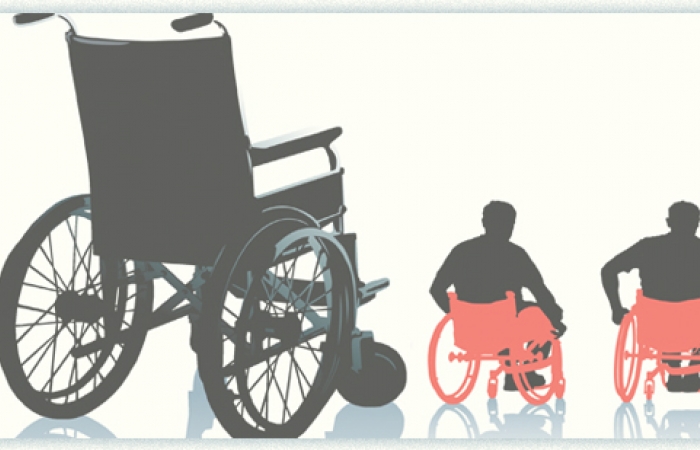
Cushion Comfort
Anyone using a wheelchair, even for a few hours a day, needs to sit on a cushion. The most obvious reason for using a wheelchair cushion is simply to offer general comfort by reducing friction and vibration. A good cushion also can wick away moisture and keep you cool.More importantly, a quality cushion can protect skin from bruising and breakdown. Pressure sores or ulcers are a serious risk because sitting all day reduces blood flow, as does loss of muscle. Pressure sores can, in the worst cases, lead to hospitalization, surgery and infections, and they reduce the strength of the skin even after they’re healed.
Read More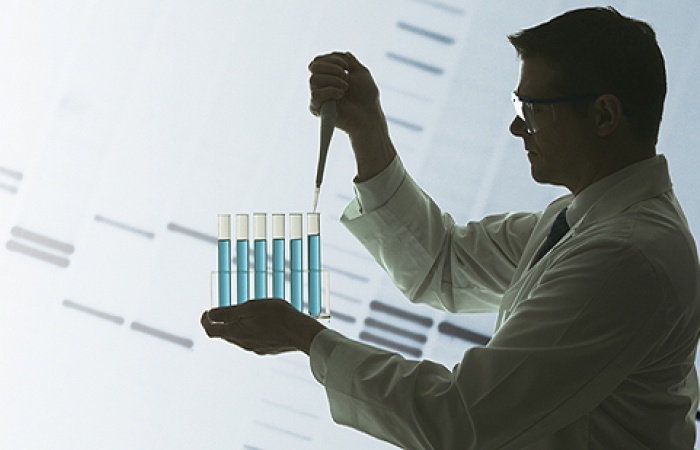
New Guidelines on Genetic Testing in Children
As scientists learn more about what our DNA can tell us about health and disease, public interest has intensified and genetic testing has become increasingly common. In response, the American Academy of Pediatrics (AAP) and the American College of Medical Genetics and Genomics (ACMG) have released new guidelines to address updated technologies and new uses of genetic testing and screening in children.
Read More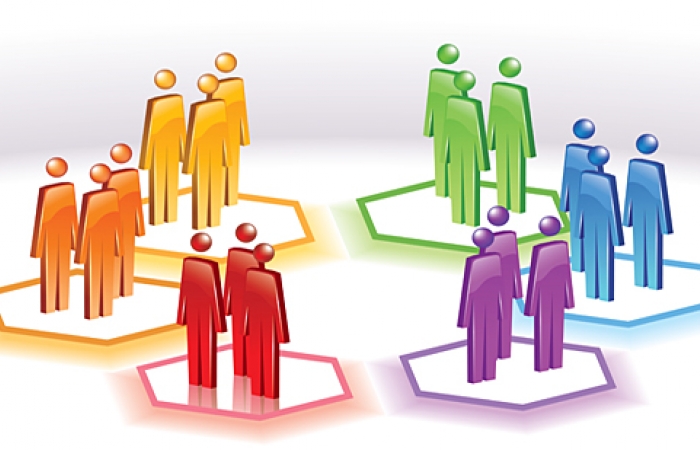
MDA Establishes Myotonic Dystrophy Clinical Research Network
MDA has launched a new, five-center clinical research network focused on type 1 and type 2 myotonic muscular dystrophy (MMD1 and MMD2, also known as DM1 and DM2), with the principal goal of preparing for testing of new MMD treatments as they become available.Each center in the new network has a particular interest and expertise in MMD, and the centers are distributed across the United States to maximize opportunities for participation in studies. Neurologist Charles Thornton at the University of Rochester Medical Center is the network's overall principal investigator.
Read More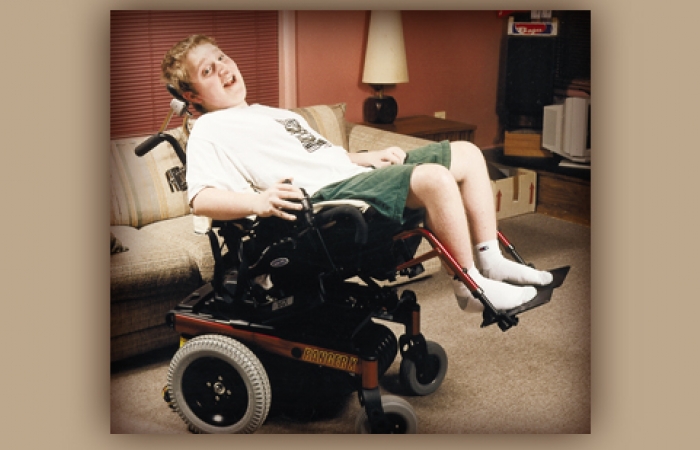
Adapting to Change After Spinal Surgery
Tina Duong, a physical therapist at Children's National Medical Center in Washington, D.C., sees many children with neuromuscular disorders who undergo spine-straightening surgery. "From a rehabilitation standpoint, it would be really helpful if surgeons had a physical therapist or other rehabilitation specialist discuss with parents anticipated changes to their child’s movement and ability and need for adaptive equipment," she notes.
Read More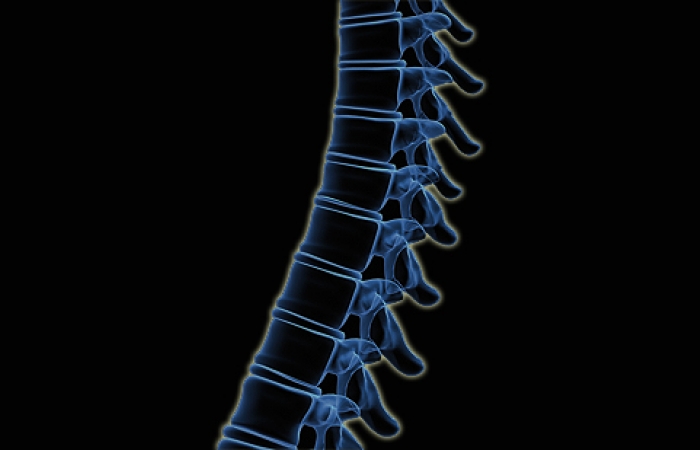
In Focus: Straightening the Growing Spine
Payton Mueller's parents knew something was amiss by the time he was 9 months old. “Payton crawled really early,” recalls his mother, Rachele Krebsbach of Crosby, N.D. “He pulled himself up on furniture at 7-and-a-half months, and he was into everything a lot sooner than I had expected him to be. But then he just kind of stopped doing everything.”
Read More
Getting Care: There’s No Place Like Home
Jeff Stafsholt is a Green Bay Packers fan second to none. Like the Wisconsin football champs, he has a winning attitude and a “never give up” mindset. To help manage the effects of limb-girdle muscular dystrophy, Jeff has a team of home care professionals who assist the 34-year-old as he independently quarterbacks his life.
Read More
MDA Launches Clinical Neuromuscular Disease Registry
Update (Feb. 5, 2013): Authors from the University of Rochester Medical Center, the Muscular Dystrophy Association (MDA), the Cystic Fibrosis (CF) Foundation and the American Academy of Neurology reviewed current approaches for obtaining patient data in Duchenne muscular dystrophy (DMD), and considered how monitoring and comparing outcomes measured across DMD clinics could lead to improved care.
Read More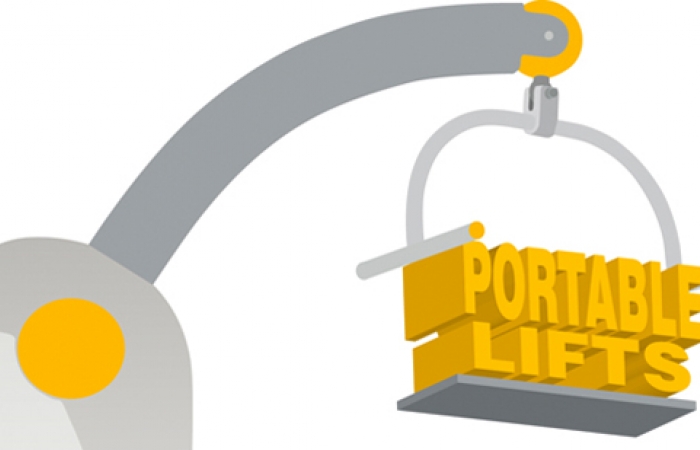
Portable Lifts: A Real Pick-Me-Up for Caregivers
Getting from here to there is often a challenge for people with muscle weakness due to neuromuscular diseases — and for their caregivers.Caregivers can develop back pain, hernias and other injuries from lifting a loved one who is unable to self-transfer. And the person being lifted risks injury from being dropped or dragged.
Read MoreHow To Get Personal Care Assistance in Emergency Shelters
Wildfires, windstorms and floods have been in the news regularly this year. What if such a disaster suddenly hit your neighborhood? Would you be prepared? Planning ahead for emergency situations is especially important for people who have disabilities that affect mobility and self-care. You are in the best position to plan for your own safety and well-being since you know your functional abilities and needs best. But where do you begin?
Read MoreMDA Resource Center: We’re Here For You
Our trained specialists are here to provide one-on-one support for every part of your journey. Send a message below or call us at 1-833-ASK-MDA1 (1-833-275-6321). If you live outside the U.S., we may be able to connect you to muscular dystrophy groups in your area, but MDA programs are only available in the U.S.